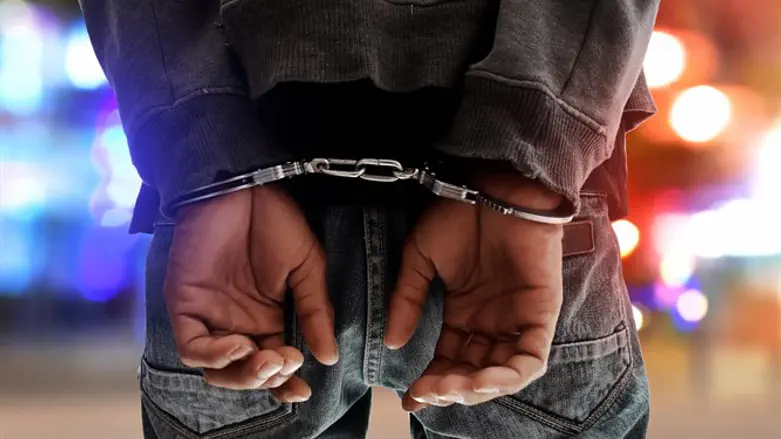
Israel Police on Tuesday arrested a foreign citizen suspected of forging a coronavirus recovery certificate, Kikar Hashabbat reported.
A court has extended the suspect's arrest by three days, both due to his status as a foreign national and due to his "attempts to avoid arrest," and due to concerns regarding the risk he presents to the public health.
According to Kikar Hashabbat, when the police came to arrest the man, he locked himself in the bathroom of the synagogue he was in. The police succeeded in arresting him only two hours later.
During the court hearing, a police representative said that "the case began due to a complaint from the Health Ministry regarding the forging of coronavirus recovery documents, on which doctors were signed." Following the complaint, the police began investigating those who were using the forged documents, as well as other involved individuals.
One of those whose names came up during the investigation was the suspect arrested Tuesday, who was called for an interrogation but failed to arrive; when the police did interrogate him, he denied the allegations.
However, during an argument with another person involved, who pointed to the suspect as someone who had helped others obtain forged certificates, the suspect denied the allegations and then remained silent.
The suspect's attorney, Roei Brauner, noted that the crimes are not considered violent, for which the reason for arrest is more essential, and that most people arrested for crimes of fraud and deception are not arrested at all; on Tuesday, several senior figures were arrested for fraud and released immediately.
He also pointed out that since the suspect's passport had been confiscated, there is no risk that he will flee the country and no reason he should not be released under limiting conditions, such as to house arrest.
Brauner also noted that the case has been ongoing for nine months, and the suspect is the last of the group to be interrogated.
Jerusalem Magistrates Court Judge Elad Lang said: "The respondent is suspected of committing crimes of fraud, intentional forgery in order to receive something, and intentional use of something forged to receive something. In accordance with the allegations against him, he forged or obtained for others certificates of recovery for tests or coronavirus patients, thus allowing those receiving his forged certificates, among other things, to enter and exit Israel without restrictions."
He added that there are proofs that show a "reasonable suspicion, and it is highly probable," that the suspect "committed the crimes ascribed to him."
"The respondent in his interrogation initially denied the allegations against him, and after he argued with people and materials presented to him, chose to remain silent."
